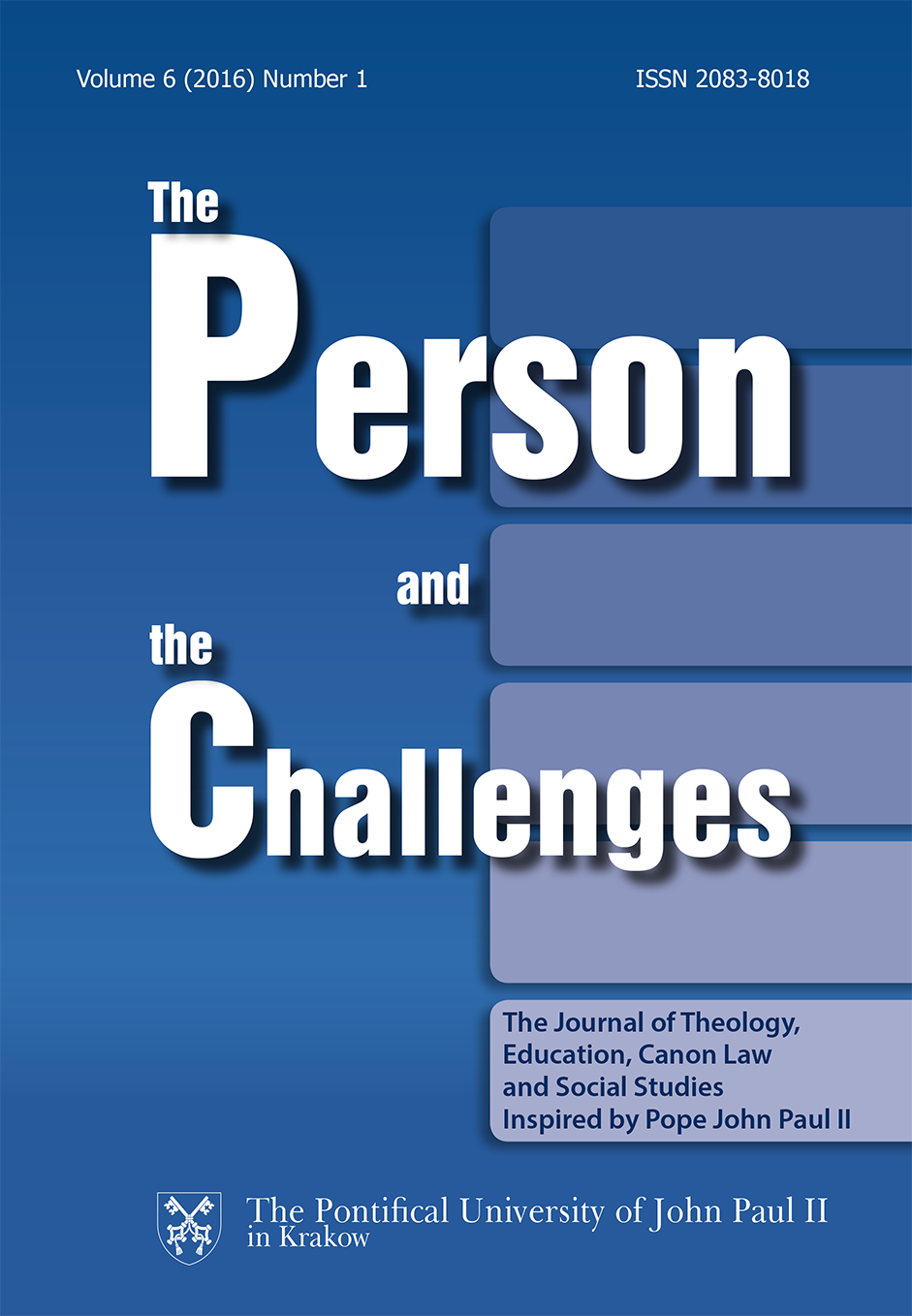Tutela giuridica della professione religiosa ad tempus emissa
DOI:
https://doi.org/10.15633/pch.1666Słowa kluczowe:
Canonical state, condicio, consecrated life, religious profession, pre‑establishment of proofAbstrakt
The question, which launched our study, concerns the problem of the legal possibilities carried out in order to protect canonically the state of the consecrated life even though assumed temporary. Firstly, the Author tries to focus on the meaning of the canonical state and canonical status of the consecrated persons. The aim is to point out that it is not appropriate to simply consider condicio as the state sic et simpliciter in the meaning of the legislation of the 1983 Code.In a second moment, the Author analyses the hypothesis relates to lose the proper canonical status, especially this one assumed ad tempus. The question the Author tries to answer concerns legal possibilities and appropriates manners in order to protect the single consecrated religious.
Finally, the Author presents the main thesis of this paper, relates to the pre‑establishment of the proof. In this perspective, it is very convenient for both the religious Authority and an individual religious to document the proper acts/activities even though, in case of the legal Superiors, deprived of binding force.
Bibliografia
Pontificia Commissio Codici Iuris Canonici Recognoscendo, Principia quæ Codicis recognitionem dirigant, „Communicationes” 1 (1969), p. 77–85.
Pontificium Consilium de Legum Textibus, Utrum auctoritatis competens ad recipiendum recursum in suspensivo (can. 700), 17 maii 1986, „AAS” 78 (1986), p. 1323.
Supremum Tribunal Signaturæ Apostolicæ, coram VALLINI, decretum diei 2 dicembris 2006, Prot. N° 33358/02 CA, „Apollinaris” LXXXIV/2 (2011), p. 473.
Andrés D., Le forme di vita consacrata. Commentario teologico‑giuridico al Codice di Diritto Canonico, Roma 2008, Ediurcla, p. 394.
Boni B., ‘Tutela de los derechos de los fieles’, in J. Otaduy‑A. Viana‑J. Sedano (ed.), Diccionario General de Derecho Canónico, vol. VII, Navarra 2012, Aranzdi, p. 712–718.
Composta D., Gli stati societari nella comunità ecclesiale, I: Lo stato cristiano o personalità costituzionale del battezzato, „Ius Canonicum” 20 (1969), p. 2250–274.
De Paolis V., La vita consacrata nella Chiesa, Venezia 2011, Marcianum Press, p. 88.
Doyle T., The canonical status of Religious Institutes, „Angelicum” 63 (1986), p. 615–630.
Fornés J., El concepto de estado de perfección: consideraciones criticas, “Ius Canonicum” 23/2 (1983), p. 681–712.
Gherri P., Diritto amministrativo canonico. Introduzione generale: fondamenti, teoria e metodo. Roma 2009–2010, p. 178–179 [non pubblicata].
Grocholewski Z., Aspetti teologici dell’attività giudiziaria della Chiesa, „Monitor Ecclesiasticus” 110 (1985), p. 489–504.
Jiménez Echave A., ‘Profesión religiosa’, in: J. Otaduy‑A. Viana‑J. Sedano (ed.), Diccionario General de Derecho Canónico, vol. VI, Navarra 2012, p. 542–545.
Longhitano A., Stati e funzioni del Popolo di Dio, in Gruppo Italiano Docenti di Diritto Canonico (ed.), Il diritto nel mistero della Chiesa, vol. II, 3° ed., Roma 2001, Lateran University Press, p. 71–76.
McDermott R., The Consecrated Life. Cases, Commentary, Documents, Readings, Alexandria VA 2006, Canon Law Society of America, p. 188–189.
Moneta P., La prospettiva canonistica, in P. Moneta (ed.), Nuove forme di tutela delle situazioni soggettive nelle esperienze processuali. Profili pubblicitici, Milano 2004, Giuffrè, p. 37–70.
Michowicz P., La dimissione facoltativa dall’Istituto religioso secondo il Codice di diritto canonico del 1983. Le problematiche nell’applicazione della procedura. Theses ad doctoratum in Utroque iure, Roma 2013, p. 277–279.
Michowicz P., Akty autodeterminujące personalny status prawnokanoniczny osób konsekrowanych, „Roczniki Nauk Prawnych” XXV/1 (2015), p. 109–120.
Miras J.- Canosa J.- Baura E. (ed.), Compendio di diritto amministrativo canonico, Pamplona 2001, Eunsa, p. 406.
Shakal D., The canonical status of members of Institutes of Consecrated Life, „Studia Canonica” 43 (2009), p. 297–329.
Valdrini P., Comunità, Persone, Governo, Roma 2013, Lateran University Press, p. 151–152; 157–158.
Pobrania
Opublikowane
Numer
Dział
Licencja
Prawa autorskie (c) 2016 Przemysław Michowicz OFMConv

Utwór dostępny jest na licencji Creative Commons Uznanie autorstwa 4.0 Międzynarodowe.
Autorzy publikujący w czasopiśmie udzielają jego wydawcy zgody o następującej treści:
- Autor zachowuje autorskie prawa majątkowe do utworu, a jednocześnie udziela wydawcy czasopisma zgody na jego pierwszą publikację w wersji drukowanej i wersji online na licencji Creative Commons Uznanie autorstwa 4.0 Międzynarodowe oraz zgody na wykonywanie opracowań, w tym przekładów.
- Autor ma możliwość udzielania zgody niewyłącznej na opublikowanie utworu w wersji, która ukazała się w czasopiśmie (np. zamieszczenia go w repozytorium instytucjonalnym lub opublikowania w książce), wraz z informacją o jego pierwszej publikacji w czasopiśmie.
- Autor może umieścić swój utwór online (np. w repozytorium instytucjonalnym lub na swojej stronie internetowej) jeszcze przed zgłoszeniem utworu do czasopisma.

